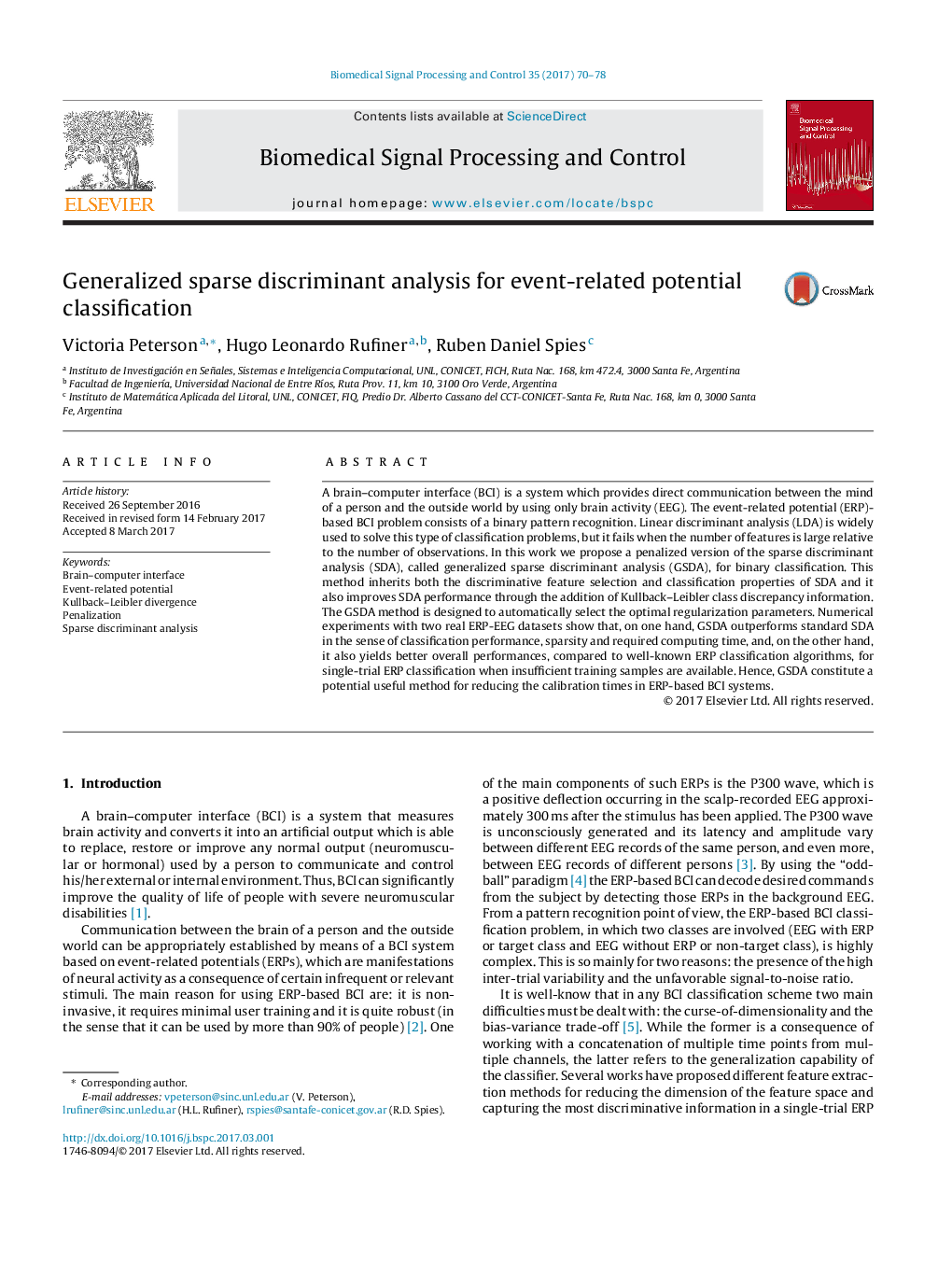| کد مقاله | کد نشریه | سال انتشار | مقاله انگلیسی | نسخه تمام متن |
|---|---|---|---|---|
| 4973585 | 1451645 | 2017 | 9 صفحه PDF | دانلود رایگان |
عنوان انگلیسی مقاله ISI
Generalized sparse discriminant analysis for event-related potential classification
ترجمه فارسی عنوان
تجزیه و تحلیل تجزیه و تحلیل ضعیف عمومی برای طبقه بندی پتانسیل مربوط به رویداد
دانلود مقاله + سفارش ترجمه
دانلود مقاله ISI انگلیسی
رایگان برای ایرانیان
کلمات کلیدی
موضوعات مرتبط
مهندسی و علوم پایه
مهندسی کامپیوتر
پردازش سیگنال
چکیده انگلیسی
A brain-computer interface (BCI) is a system which provides direct communication between the mind of a person and the outside world by using only brain activity (EEG). The event-related potential (ERP)-based BCI problem consists of a binary pattern recognition. Linear discriminant analysis (LDA) is widely used to solve this type of classification problems, but it fails when the number of features is large relative to the number of observations. In this work we propose a penalized version of the sparse discriminant analysis (SDA), called generalized sparse discriminant analysis (GSDA), for binary classification. This method inherits both the discriminative feature selection and classification properties of SDA and it also improves SDA performance through the addition of Kullback-Leibler class discrepancy information. The GSDA method is designed to automatically select the optimal regularization parameters. Numerical experiments with two real ERP-EEG datasets show that, on one hand, GSDA outperforms standard SDA in the sense of classification performance, sparsity and required computing time, and, on the other hand, it also yields better overall performances, compared to well-known ERP classification algorithms, for single-trial ERP classification when insufficient training samples are available. Hence, GSDA constitute a potential useful method for reducing the calibration times in ERP-based BCI systems.
ناشر
Database: Elsevier - ScienceDirect (ساینس دایرکت)
Journal: Biomedical Signal Processing and Control - Volume 35, May 2017, Pages 70-78
Journal: Biomedical Signal Processing and Control - Volume 35, May 2017, Pages 70-78
نویسندگان
Victoria Peterson, Hugo Leonardo Rufiner, Ruben Daniel Spies,
